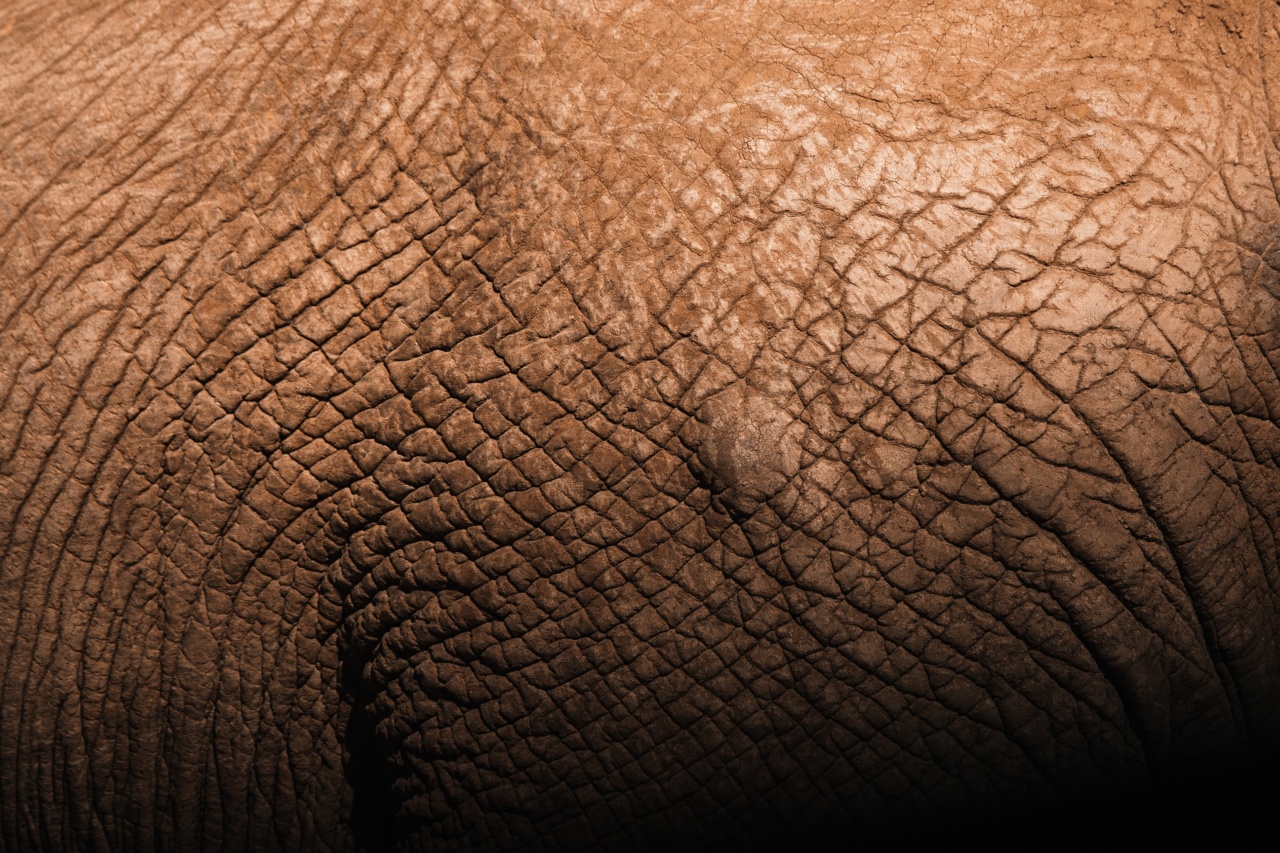As we age, our skin undergoes various changes, and one common issue that many people face is dry skin. Dry skin can be uncomfortable, itchy, and unsightly, and it may even worsen certain skin conditions such as eczema or psoriasis.
Fortunately, there are several steps you can take to prevent dry skin and maintain a healthy, hydrated complexion as you age. In this article, we will explore the causes of dry skin, discuss effective preventive measures, and provide tips for maintaining optimal skin moisture.
Understanding the Causes of Dry Skin
Dry skin is caused by a lack of moisture in the outer layer of the skin, known as the epidermis. This can occur due to several factors:.
1. Natural Aging Process
As we age, our skin produces less oil, making it harder for our skin to retain moisture. The reduction in oil production can be attributed to hormonal changes, which occur as a natural part of the aging process.
Additionally, the skin’s ability to repair itself decreases, leading to dryness and an overall dull complexion.
2. Environmental Factors
Environmental conditions play a significant role in skin dehydration. Low humidity levels, especially during the winter months, can strip the skin of its natural moisture.
Exposure to extreme weather conditions, such as cold winds or excessive heat, can exacerbate dryness. Indoor heating and air conditioning systems also contribute to moisture loss in the skin.
3. Harsh Cleansers and Products
Using harsh soaps, cleansers, or skincare products can strip the skin’s natural oils, leading to dryness. Ingredients such as alcohol, fragrances, and certain preservatives can be especially drying.
Using hot water for cleansing can also contribute to moisture loss as it can remove the skin’s protective barrier.
4. Medical Conditions and Medications
Certain underlying medical conditions, such as hypothyroidism or diabetes, can cause dry skin. Additionally, medications like diuretics, antihistamines, or acne treatments may have a drying effect on the skin as a side effect.
If you suspect that a medical condition or medication is the cause of your dry skin, it’s crucial to consult with a healthcare professional.
Tips for Preventing Dry Skin
Now that we understand the causes of dry skin, let’s explore ten effective tips to prevent and combat dryness as you age:.
1. Moisturize Regularly
One of the most crucial steps in preventing dry skin is to moisturize regularly. Look for creams or lotions that contain humectants like hyaluronic acid or glycerin, which draw water into the skin.
Additionally, opt for a moisturizer that includes occlusive agents like petrolatum or ceramides, which help seal in moisture.
2. Avoid Hot Showers
While hot showers can be relaxing, they can also contribute to dry skin. Hot water strips the skin of its natural oils, leading to dehydration. Instead, opt for lukewarm showers and limit your shower time to 10 minutes or less.
3. Use Gentle Cleansers
Avoid harsh soaps and cleansers that contain sulfates or fragrances, as they can further dry out your skin. Opt for gentle cleansers that are formulated for dry or sensitive skin.
Look for labels that mention “hypoallergenic” or “fragrance-free.”.
4. Humidify Your Environment
Combat the drying effects of indoor heating or air conditioning by using a humidifier in your home. Humidifiers add moisture to the air and help prevent your skin from becoming dry.
5. Protect Your Skin
When venturing outside, protect your skin from harsh weather conditions. Wear a hat, scarf, and gloves during the winter to shield your skin from cold winds.
During the summer, use a broad-spectrum sunscreen to protect your skin from the damaging effects of the sun.
6. Drink Plenty of Water
Staying hydrated plays a crucial role in maintaining healthy skin. Drink plenty of water throughout the day to keep your skin adequately hydrated from the inside-out. Experts recommend drinking at least eight glasses of water daily.
7. Choose Skincare Products Wisely
When selecting skincare products, read the labels carefully and choose formulations that are designed for mature or dry skin. Look for ingredients like ceramides, hyaluronic acid, or shea butter, which are known for their hydrating properties.
8. Exfoliate Regularly
Exfoliation helps to remove dead skin cells, allowing moisturizers to penetrate more effectively. However, ensure that you use a gentle exfoliant specifically formulated for your skin type.
Over-exfoliating or using harsh scrubs can lead to further dryness and irritation.
9. Wear Breathable Fabrics
The fabrics you wear can impact your skin’s moisture levels. Opt for breathable fabrics such as cotton or silk, which allow better air circulation to your skin. Avoid synthetic materials that can trap moisture and heat against your skin.
10. Visit a Dermatologist
If you experience persistent or severe dry skin despite following preventive measures, consider visiting a dermatologist. A dermatologist can assess your skin condition, identify any underlying causes, and provide targeted treatment or recommendations.
Conclusion
Dry skin is a common concern as we age, but with the right preventive measures, it can be managed effectively.
By moisturizing regularly, protecting your skin from environmental factors, and making lifestyle adjustments, you can maintain a healthy, hydrated complexion. Remember to choose skincare products wisely, avoid harsh cleansers, and stay hydrated from the inside-out. If dry skin persists or worsens, consult with a dermatologist for personalized advice.






























